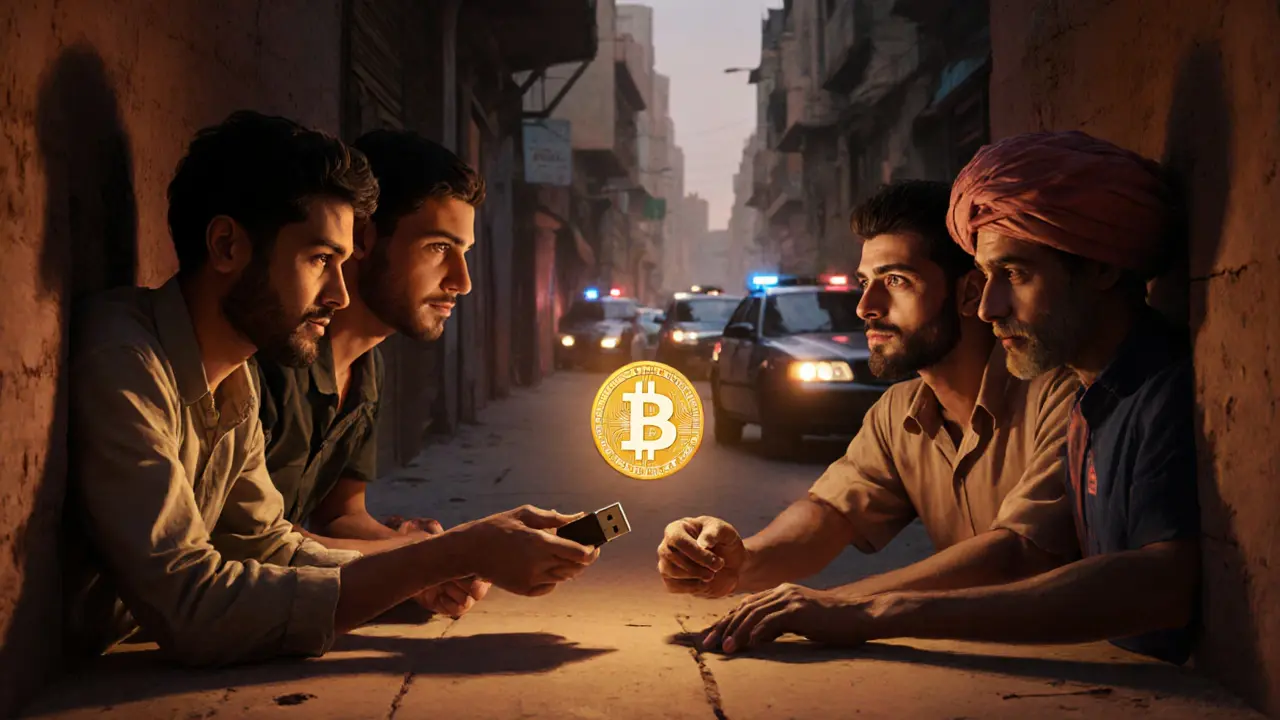Egypt Cryptocurrency Ban: What Happened and How It Affects Users
When Egypt cryptocurrency ban, a government-imposed prohibition on using cryptocurrencies for payments and exchanges. Also known as crypto trading restrictions in Egypt, it was introduced in 2020 by the Central Bank of Egypt to protect the national currency and prevent financial instability. Unlike outright bans on ownership, this rule targets transactions — meaning you can hold Bitcoin or Ethereum, but you can’t buy coffee with it, send crypto to a friend, or use local exchanges to trade.
The ban ties directly to crypto regulation Egypt, the legal framework that controls how digital assets interact with the Egyptian financial system. The government’s main concern? Money laundering, capital flight, and unregulated foreign currency flows. They saw crypto as a tool for bypassing Egypt’s strict currency controls, where the Egyptian pound has struggled against inflation and limited access to dollars. To stop this, they shut down banks from processing crypto-related payments and pressured payment platforms to block crypto wallets. But enforcement? That’s another story. Many Egyptians still use peer-to-peer platforms like Paxful and LocalBitcoins, often trading in cash or mobile money. It’s not legal, but it’s common.
crypto mining ban Egypt, a related but separate restriction on using electricity to mine digital coins. While not officially codified like the transaction ban, mining has been effectively blocked. The government doesn’t want power-hungry rigs draining electricity from homes and hospitals — especially after the 2024 energy crisis that forced Angola to shut down mining entirely. In Egypt, power shortages are still a daily issue in many areas. So even if someone sets up a miner in their basement, they risk being reported, fined, or having their power cut. Some try to use solar panels to avoid detection, but the risk isn’t worth it for most.
What about people who just want to save money? With inflation hitting over 30% in some years, crypto looked like a lifeline. But the ban made it harder to convert earnings into stable assets. Many turned to USDT on decentralized networks, using VPNs to access foreign wallets. Others rely on friends abroad to send crypto, then cash out through trusted middlemen. It’s a gray market — risky, but alive.
The digital currency restrictions, broader rules that limit access to global blockchain services. include blocking access to certain exchanges, freezing accounts linked to crypto activity, and pressuring telecom providers to restrict apps that facilitate peer-to-peer trades. You won’t find Binance or Kraken officially operating in Egypt. But that doesn’t mean they’re gone — it just means users have to work harder to reach them.
There’s no sign the ban is lifting. The Central Bank is pushing its own digital currency, the e-pound, as the official alternative. But it’s not ready yet — and even if it is, it won’t offer the same freedom as decentralized crypto. For now, the Egyptian crypto scene survives underground: in WhatsApp groups, in cash trades behind closed doors, and in the quiet determination of people who see digital money as their only hedge against economic uncertainty.
Below, you’ll find real reviews and analyses of platforms Egyptians use despite the ban, breakdowns of how crypto seizures work in authoritarian regimes, and guides on staying safe when trading in restricted markets. These aren’t theoretical — they’re the tools people are using right now to navigate a system that says crypto is illegal, but won’t stop them from using it anyway.
3 Million Crypto Holders in Egypt Despite Complete Ban: The Truth Behind the Numbers
Despite Egypt's complete legal ban on cryptocurrency, millions continue to hold and use digital assets. Here's why the ban isn't working-and what's really driving crypto adoption in the country.
